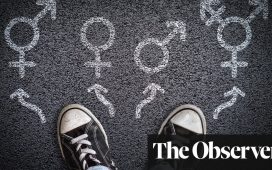A federal judge has granted a preliminary injunction against the University of Florida in a lawsuit … [+]
getty
In a sharply worded, 74-page opinion, Federal District Judge Mark E. Walker today granted six faculty members’ request for a preliminary injunction that temporarily blocks the University of Florida from enforcing a conflict-of-interests policy it had used to restrict faculty seeking to serve as expert witnesses in litigation involving the State of Florida.
The professors have alleged that the university’s policy on conflicts of interests violates the First Amendment because it discriminates based on viewpoint and content and because it amounts to an unconstitutional prior restraint on speech. They sought an injunction that would prevent the university from enforcing “any policy or practice that provides the University discretion to limit Plaintiffs’ ability to undertake outside activities, on a paid or unpaid basis.”
The lawsuit was initially filed by three political science professors – Sharon Austin, Michael McDonald and Daniel Smith – after university officials had barred them last year from testifying in a federal lawsuit seeking to overturn the state’s new voting law, claiming that because the University of Florida was a state institution, its faculty could not testify as experts because doing so would be “adverse to U.F.’s interests.” Three other UF faculty joined the suit later, claiming that they too had been discriminated against by the university’s policy on conflicts of interests.
In his ruling, Judge Walker ordered that the university “must take no steps to enforce its conflict-of-interests policy with respect to faculty and staff requests to engage as expert witnesses or provide legal consulting in litigation involving the State of Florida until otherwise ordered.”
The judge ordered that the injunction was effective immediately. His order left in place the defendants’ policy that prohibits faculty from citing their university affiliation when serving as expert witnesses in some cases.
In his analysis, Judge Walker opined that “it is not unreasonable, moving forward, for Plaintiffs to believe that UF will use its policy to squelch their speech; it is unreasonable for them to believe that it will not.
“Our society would be immeasurably poorer without Plaintiffs’ speech,” he added.
David A. O’Neil, Counsel to UF Professors Sharon Austin, Michael McDonald, Daniel Smith, Jeffrey Goldhagen, Teresa J. Reid, and Kenneth B. Nunn, celebrated the ruling.
“Today’s decision is a ringing endorsement of the critical importance of faculty free speech and academic freedom to the health of our democracy. The University may no longer prohibit faculty members from sharing their views with courts and the public just because the ruling political party doesn’t want to hear their truth. The decision sends a clear message to public universities across the country – and to politicians who would try to interfere with them – that they too must honor the constitutional principles that make the college campus a vital engine of a free society,” O”Neil said.
The case has garnered national attention from its outset because of its implications for academic freedom and free-speech rights of college faculty. And it has been a public relations nightmare for the University of Florida, which has come in for widespread scrutiny and criticism over how it’s handled the issue.
Within just about two months of the case becoming public, Dr. W. Kent Fuchs indicated he would retire as the university’s president at the end of the current academic year and return to the UF faculty. Although President Fuchs said that his decision had been in the works for months, the controversy over the expert testimony issue was just one of several political controversies that he had to confront at the university in recent years.
—






